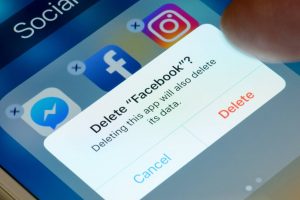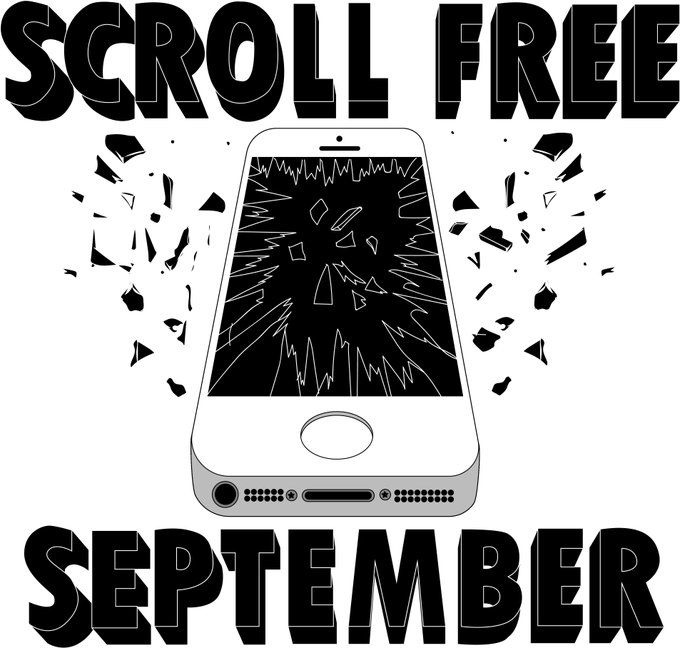Do you spend more time flicking the screen on your phone than talking to other members in your house hold?
It's good to talk and you seem to reach the end of your conversation much quicker than messaging someone. This gives you much more time to flick................ and skim.............. and watch 2 seconds of a video before moving on.
Time and again, researchers have found a link between social media and mental ill-health. While many of us may vow to put our phones down each time a new study comes out showing a correlation between excessive scrolling and anxiety, depression, low self-esteem, poor sleep, the list goes on, we tend to revert to our old habits.
It's just not as easy as it sounds to cultivate a "healthy" relationship to social media. But a new public health campaign is encouraging people to use it more mindfully during September for the sake of their mental health.
The Royal Society for Public Health (RSPH) is promoting #ScrollFreeSeptember, urging us to have a month-long social media detox, in a similar vein to Stoptober (no smoking/alcohol) and Dry January (no alcohol).
Having a #ScrollFreeSeptember makes clear the aspects of social media “that may be having a more negative impact on your wellbeing”, the society says, allowing you to use "that knowledge to establish a healthier, more balanced relationship with social media in the future."
No one is advocating that everyone goes the whole hog and gives up entirely. There are five suggested plans for those taking part, each requiring varying levels of willpower:
• The Busy Bee bans social media use during office hours in a bid to boost productivity.
• The Social Butterfly bans social media during all social events, encouraging you to be present with friends and family.
• Night Owls are discouraged from checking their accounts after 6pm.
• Sleeping Dogs are banned from bringing social media into the bedroom in the hope that it will improve their sleep.
• The Cold Turkey, meanwhile, is for the strongest willed and means a total break from all social media.
"Whether it’s scrolling before bed stopping you sleeping, following aspirational and unattainable accounts denting your self-esteem, or the ever-presence of phones getting in the way of your face-to-face interactions with friends and family, Scroll Free September gives us all the opportunity to identify those negative elements and cut them out for good," said Shirley Cramer CBE, Chief Executive of RSPH.
The society expects more than 300,000 people to taking part this month, with women three times more likely than men thought to be taking on the challenge. People aged between 25-34 year also said they were keenest to go on a social media detox (34%), followed by 18-24 year olds (16%), and just under 10% of those from older age groups.
So far, lots of people seem to be reaping the rewards and using social media more mindfully.


